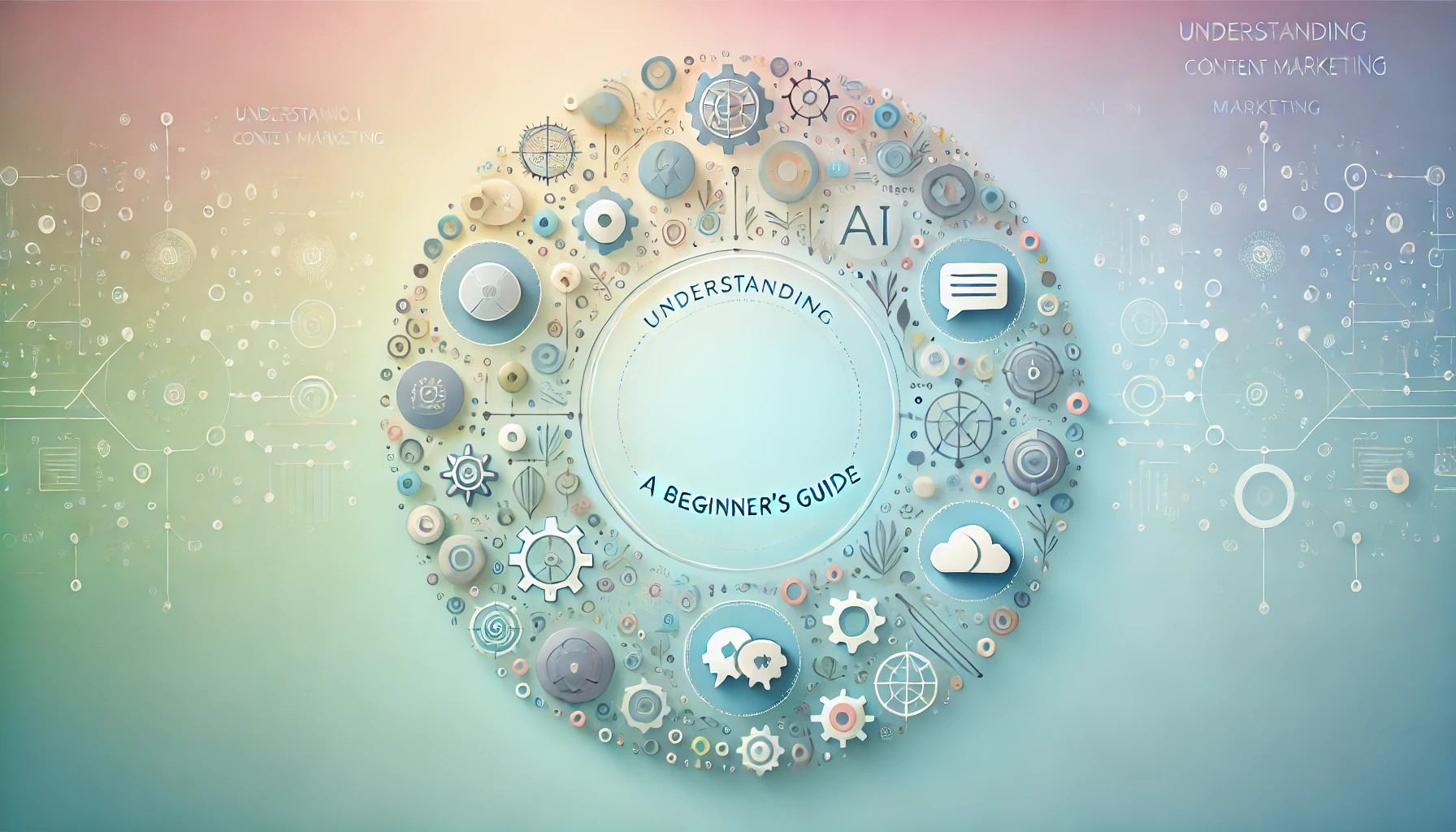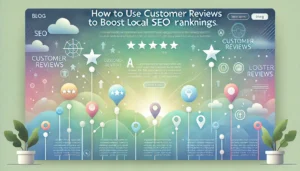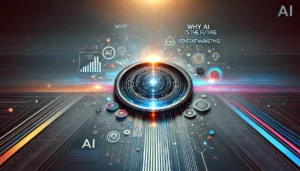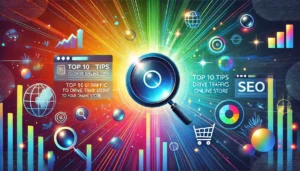Understanding AI in Content Marketing: Key Concepts and Benefits
As you step into the world of content marketing, you might have heard a lot about artificial intelligence (AI). Understanding AI in content marketing can give you a significant edge. AI can streamline your processes, enhance the quality of your content, and ultimately, boost your return on investment. Let’s explore some key concepts and benefits to help you grasp how AI can elevate your content strategy.
What Is AI in Content Marketing?
AI in content marketing uses advanced algorithms and technologies to automate tasks, analyze data, and create content that resonates with your audience. Imagine having a smart assistant that understands your target market, analyzes their preferences, and creates tailored content just for them. That’s the power of AI.
Core Concepts of AI in Content Marketing
Several key concepts define AI’s role in content marketing:
- Data Analysis: AI can process large volumes of data quickly. It identifies trends in consumer behavior and preferences, helping you align your campaigns effectively.
- Content Creation: Tools powered by AI can generate articles, social media posts, and other content types with minimal human intervention, saving you time and effort.
- SEO Optimization: AI helps in optimizing content for search engines by analyzing keywords, and suggesting improvements for better visibility.
- Personalization: AI can tailor content based on user behavior, providing personalized experiences that increase engagement and conversions.
Benefits of Using AI in Content Marketing
Integrating AI into your content marketing strategy comes with numerous benefits:
1. Enhanced Efficiency
AI allows you to create and distribute content faster. By automating repetitive tasks such as scheduling posts and data analysis, you can focus on more strategic aspects of your marketing efforts.
2. Consistent Quality
AI-generated content maintains a consistent tone and quality. This is crucial for branding, as readers appreciate coherent and well-articulated messages. Moreover, incredible tools can analyze your existing content and help you maintain the desired quality across all platforms.
3. Improved Insights
AI offers valuable insights into customer behavior. By processing data, AI tools can predict trends and preferences, allowing you to tailor your content more effectively. Imagine knowing what your audience wants even before they express it!
4. Cost-Effective Solutions
Utilizing AI can dramatically reduce your content production costs. Instead of hiring a full team of content creators and analysts, AI tools can perform many of these functions at a fraction of the cost, making it an attractive option for businesses of all sizes.
How to Get Started with AI in Content Marketing
You might wonder how to begin using AI in your content marketing strategy. Here are some steps to get you started:
- Identify Your Needs: What tasks do you struggle with the most? Is it content creation, SEO, or analytics? Pinpointing your primary challenges will help in choosing the right AI tools.
- Research AI Tools: Explore the various AI tools available, such as content generation platforms, SEO optimizers, and analytics software. Choose ones that fit your budget and needs.
- Test and Analyze: Start with a single AI tool to see how it impacts your content marketing efforts. Measure its effectiveness using data analytics and adjust your strategy accordingly.
- Continuously Learn: The world of AI is continually evolving. Stay updated on new tools and features that can further enhance your content marketing strategy.
Understanding AI in content marketing is essential for any marketer looking to stay competitive. By leveraging the power of AI, you can enhance your efficiency, ensure content quality, and gain invaluable insights into consumer behavior.
By getting familiar with these concepts and benefits, you’ll be well on your way to creating a highly effective content marketing strategy powered by AI. Embrace this technology, and watch your marketing efforts transform and flourish.
The Role of Machine Learning in Content Creation
Machine learning is revolutionizing how we approach content creation in today’s digital landscape. By harnessing the power of data and algorithms, creators can produce tailored content that resonates with targeted audiences. This technology can analyze user preferences and trends, allowing for personalized experiences that engage readers more effectively than ever.
One of the critical advantages of machine learning is its ability to analyze vast amounts of data quickly. Here’s how it works:
- Data Gathering: Machine learning systems can collect and evaluate data from various sources, including social media, website interactions, and user behavior.
- Trend Analysis: Algorithms can identify patterns in consumer behavior, helping creators understand what types of content perform best.
- Segmentation: Audiences can be segmented based on their preferences, allowing for targeted messaging that speaks directly to their interests.
These insights are invaluable. By using this information, writers can create content that targets specific demographics, increasing engagement and effectiveness. For instance, if a machine learning tool identifies that younger audiences prefer short videos over long articles, content creators can adjust their strategies to meet this preference.
Another exciting aspect of machine learning is its role in automating content generation. Tools powered by AI can draft articles, create social media posts, or even generate marketing copy based on given parameters. While this may seem daunting, here are some ways it can enhance your workflow:
- Efficiency: By automating repetitive tasks, writers can devote more time to creativity and strategy.
- Consistency: AI can help maintain a consistent tone and style across various pieces of content.
- Scalability: Automation enables content creation at a scale that would be impossible for a human alone.
However, it’s important to remember that machine learning is a tool, not a replacement. Human creativity and insight are essential for crafting content that resonates on an emotional level. AI tools can provide valuable recommendations, but it’s the human touch that ultimately delivers meaningful stories. Balancing both elements can lead to more impactful content.
Furthermore, machine learning algorithms also play a significant role in optimizing content for search engines. By analyzing which keywords drive traffic and which topics are trending, these systems guide writers in creating content that ranks better. Here’s what you can do:
- Keyword Analysis: Use AI tools to discover high-volume keywords relevant to your content.
- Content Optimization: Adjust your content structure based on data regarding what readers prefer.
- Performance Tracking: Regularly monitor content performance to refine future strategies.
Moreover, engagement metrics, like click-through rates and bounce rates, can be continuously analyzed by machine learning systems. This ongoing assessment ensures that content remains relevant and attractive to your audience, allowing you to make timely adjustments as needed.
Additionally, personalization is a game-changer. With machine learning, you can tailor content to individual users. This might involve recommending articles based on past reading habits or adapting newsletters to suit different audience segments. Personalization increases the likelihood of engagement, making readers feel valued and understood.
As you explore machine learning in content creation, it’s essential to remain aware of the ethical considerations surrounding AI use. Transparency in processes and respect for user privacy should be top priorities. By prioritizing ethical practices, not only do you build trust with your audience, but you also contribute positively to the industry’s future.
The role of machine learning in content creation cannot be overstated. It enables efficiency, enhances engagement through personalization, and optimizes content for search visibility. As a writer or marketer, understanding and leveraging these capabilities can dramatically shift how you produce, manage, and distribute content. Embrace this technology, but always pair it with human intuition to create the most compelling narratives. This combination can lead to a more effective and enriching content marketing strategy.
How AI Enhances Audience Targeting and Personalization
In the world of digital marketing, understanding your audience is key to success. With the rapid advancement of artificial intelligence (AI), businesses now have powerful tools at their disposal to enhance audience targeting and personalization. This allows them to deliver more relevant content to the right people at the right time. Let’s delve into how AI is transforming this crucial aspect of marketing.
One of the primary ways AI enhances audience targeting is through data analysis. AI systems can analyze vast amounts of data quickly. They identify patterns and trends in user behavior that would be impossible for a human to spot. By processing information from social media, website visits, email interactions, and online purchases, AI tools generate insights about what your audience likes, their buying habits, and their preferences.
With these insights, you can create targeted marketing campaigns. For instance, if AI analysis reveals that many of your customers enjoy outdoor activities, you can focus your advertising on outdoor gear and related products. Crafting marketing messages that align with these insights increases the chance of engagement, leading to higher conversion rates.
Moreover, AI-powered tools help segment your audience more effectively. Segmentation is the practice of dividing your audience into groups based on characteristics such as age, gender, interests, and behaviors. AI can automate this process, allowing you to categorize your audience quickly and accurately. This means communication can be tailored to each group’s specific needs, enhancing the effectiveness of your campaigns.
Another significant advantage of AI in audience targeting is predictive analytics. Predictive analytics uses historical data to forecast future behaviors. For example, if a customer frequently purchases fitness products during the New Year, an AI system can recommend similar products during that period. This anticipatory approach keeps your brand top-of-mind and encourages repeat purchases.
Beyond targeting, personalization plays a crucial role in customer retention and satisfaction. AI enables businesses to personalize content and recommendations on a very granular level. For instance, e-commerce sites can utilize AI algorithms to suggest products based on previous purchases. You might notice that the clothing website shows you outfits based on what you bought previously. This creates a tailored shopping experience that enhances user engagement.
Furthermore, AI can personalize email marketing efforts by analyzing individual subscriber preferences and behaviors. By understanding what content resonates most with each recipient, businesses can craft personalized emails. Ideas include:
- Dynamic Content: Changing parts of the email based on the recipient’s data, making each email unique.
- Personalized Offers: Sending discounts or promotions based on past purchases or browsing history.
- Behavioral Triggers: Triggering emails based on specific actions a user takes, such as abandoning a shopping cart.
The trend of conversational AI is also playing a pivotal role in enhancing audience engagement. Chatbots and virtual assistants streamline customer service and offer personalized interaction. When users ask questions or interact with your website, these AI tools can analyze their inquiries and provide tailored responses. This not only improves the customer experience but also builds trust and loyalty.
Moreover, AI helps businesses stay relevant with real-time analytics. By continuously monitoring audience behavior, you can adapt your strategies almost instantly. For example, if you notice a surge in interest around a specific topic, you can create content that speaks to that interest without delay.
AI technologies such as machine learning and natural language processing (NLP) further enhance your marketing efforts. Machine learning algorithms can adapt based on past interactions, improving the accuracy of targeting over time. NLP, on the other hand, helps analyze customer feedback from reviews or social media, allowing you to gauge sentiment and modify your marketing approach accordingly.
As you incorporate AI into your marketing strategies, it’s essential to balance automation with authenticity. While AI offers incredible efficiencies, the human touch remains crucial. Building relationships with your audience shouldn’t just rely on algorithms; it should also foster genuine connection and trust.
AI transforms audience targeting and personalization, allowing businesses to understand their customers deeply and communicate more effectively. By leveraging AI for data analysis, segmentation, predictive insights, personalized content, and real-time performance, you can enhance customer experiences and drive growth. As this technology continues to advance, embracing AI will be essential for staying competitive in the digital marketing landscape.
Tools and Technologies Revolutionizing Content Marketing
In today’s fast-paced digital landscape, content marketing continues to evolve, driven by innovation and advanced technologies. Businesses and marketers are always on the lookout for tools that can enhance their strategies, drive engagement, and ultimately lead to better results. Understanding the various tools and technologies available can give you a competitive edge. Here are some game-changers in the field of content marketing.
Data Analytics Platforms
Data analytics has transformed how marketers understand their audience. Platforms such as Google Analytics, HubSpot, and Adobe Analytics allow you to track user behavior, demographics, and engagement metrics. This data is invaluable as it helps you refine your content strategies based on real-time feedback. You can see what types of content resonate with your audience and adjust your efforts accordingly.
Content Management Systems (CMS)
A robust Content Management System (CMS) is essential for managing your content effectively. Platforms like WordPress and Drupal enable you to create, edit, and publish content with ease. They offer features such as templates, plugins, and SEO tools that help optimize your content for search engines. Using a CMS can streamline your content workflow and ensure that your brand message remains consistent across all channels.
SEO Tools
To ensure your content reaches the right audience, you must focus on search engine optimization (SEO). Tools like SEMrush, Moz, and Ahrefs offer comprehensive keyword research, backlink tracking, and site auditing functionalities. These tools help you understand what keywords to target and how to improve your website’s visibility. Integrating these insights can significantly boost your content’s organic reach, making it more discoverable to potential customers.
Social Media Management Tools
Social media is a powerful platform for content promotion. Tools such as Hootsuite, Buffer, and Sprout Social allow marketers to schedule posts, analyze performance, and engage with audiences effectively. By leveraging social media management tools, you can maintain a consistent posting schedule, monitor engagement, and get insights into which type of content drives the most interaction.
Graphic Design Software
Visual content plays a crucial role in content marketing. Platforms like Canva and Adobe Spark make it easy to create stunning visuals, infographics, and social media graphics without needing advanced design skills. With the rise of visual content in marketing, utilizing graphic design software can enhance your storytelling and make your content more engaging.
Email Marketing Tools
Email marketing remains one of the most effective channels for reaching your audience. Tools such as Mailchimp, Constant Contact, and ActiveCampaign allow you to design eye-catching newsletters, segment your audience, and automate your campaigns. With these tools, you can analyze open rates and click-through rates, helping you understand your audience’s preferences and tailor your content accordingly.
AI-Powered Content Creation Tools
Artificial intelligence is revolutionizing content creation by enabling marketers to produce high-quality content quickly. Tools like Jarvis and Writesonic utilize AI to generate blog posts, articles, and even social media updates. While these tools are not meant to replace human creativity, they can help streamline the content creation process and provide you with ideas that can jumpstart your writing.
Collaboration Tools
Working in teams can be challenging, especially when collaborating on content projects. Tools like Trello, Asana, and Slack facilitate communication and project management. You can assign tasks, set deadlines, and share feedback seamlessly. By leveraging collaboration tools, you can enhance teamwork and ensure that everyone is aligned toward your content marketing goals.
Video Marketing Tools
Video content has exploded in popularity, and marketers need to adopt the right tools to create engaging video experiences. Platforms like YouTube, Vimeo, and Animoto enable you to produce professional-grade videos without a hefty budget. Integrating video content into your marketing strategy can significantly boost engagement and improve retention rates among audiences.
As you explore these various tools and technologies, focus on using them to create value for your audience. The right combination of the aforementioned tools can empower you to refine your content marketing strategies and ultimately drive meaningful engagement with your target audience. Remember, the goal is not just to produce content but to tell compelling stories that resonate with those you serve.
Ethical Considerations in AI-Driven Content Strategies
As businesses increasingly adopt AI-driven content strategies, ethical considerations become paramount. It’s essential for marketers and content creators to navigate this landscape with care, ensuring that their efforts not only engage audiences but also align with ethical standards. Below, we explore key ethical concerns surrounding AI in content creation and marketing.
Transparency in AI Use
One of the foremost ethical considerations is transparency. When companies deploy AI tools to generate content or analyze consumer data, they must inform their audience. This means disclosing the use of AI in content creation and the data being used to drive decisions. Readers deserve to know if they are engaging with human-generated content or AI-generated outputs. Here are some ways to ensure transparency:
- Label AI-generated content clearly, indicating its origin.
- Provide insight into the algorithms used and sources of data.
- Be open about the methods of data collection and the purpose behind it.
Bias and Fairness
Bias in AI cannot be overlooked. Algorithms are only as impartial as the data they are trained on. If the training data contains biases, the AI will likely perpetuate those biases in its content generation. This can lead to misrepresentation of groups or skewed narratives. To mitigate bias, organizations should follow these steps:
- Regularly audit and assess the datasets used for training AI models.
- Incorporate diverse perspectives in the content creation process.
- Engage with communities affected by content to understand their views and concerns.
Privacy Concerns
With AI-driven content strategies, privacy issues take center stage. The collection and use of personal data raise questions about consent and user rights. It’s crucial for marketers to prioritize user privacy while leveraging data for personalized content. To ensure adherence to privacy standards, companies should:
- Obtain explicit consent from users before collecting their data.
- Clearly communicate how user data will be utilized.
- Incorporate privacy-by-design principles in content strategies.
Authenticity and Value
Consumers today value authenticity and meaningful engagement. AI-generated content may lack the genuine touch that resonates with audiences. Over-reliance on AI tools can result in content that feels robotic or insincere. Therefore, brands should balance AI-generated content with human creativity. Here’s how to maintain authenticity:
- Ensure content reflects the brand’s voice and values.
- Integrate human oversight to review and refine AI-generated content.
- Encourage interaction with real people through engagements like Q&A sessions or live chats.
Responsibilities of Marketers
Marketers carry a heavy responsibility in using AI ethically. They must strive for content strategies that promote trust and nurture consumer relationships. Here are important responsibilities to keep in mind:
- Foster a culture of responsibility within teams regarding AI use.
- Stay informed about the latest ethical standards and regulations related to AI.
- Promote an ethical framework within the organization that guides content practices.
Potential Consequences
Ignoring ethical considerations can lead to severe repercussions. Brands can face public backlash, legal challenges, and a decline in consumer trust. By adhering to ethical standards, companies can not only protect themselves but also strengthen their brand integrity. Remember, ethical AI-driven content strategies foster positive relationships with audiences, which are invaluable for business success.
The integration of AI in content strategies presents ethical challenges that demand attention. By focusing on transparency, fairness, privacy, authenticity, and responsibility, marketers can navigate these challenges more effectively. As you explore AI for your content marketing needs, prioritize ethics to build lasting relationships with your audience and retain their trust.
Conclusion
As you navigate the evolving landscape of content marketing, understanding AI’s role becomes vital. The key benefits of AI encompass streamlined content creation, enhanced audience targeting, and personalized experiences that resonate with your audience. By tapping into machine learning technologies, you can create compelling, relevant, and timely content that speaks directly to the needs of your readers.
AI tools and technologies are revolutionizing the way marketers engage with consumers. From automated writing software to advanced analytics platforms, these innovations not only boost productivity but also provide insights into audience behavior that were previously unattainable. This enables you to craft campaigns that are genuinely tailored to the interests of your audience, ensuring a higher level of engagement and satisfaction.
However, as you embrace AI in your content strategy, it’s crucial to remain cognizant of ethical implications. Striking a balance between automation and maintaining an authentic, human touch can lead to the most successful outcomes. Ensuring transparency, respecting audience privacy, and avoiding manipulative tactics will ultimately foster trust and loyalty among your audience.
As you explore the integration of AI in your content marketing efforts, keep these elements in mind. Embrace the technology while remaining dedicated to providing real value to your readers. With the right approach, AI can enhance your content marketing strategy, enabling you to connect more deeply with your audience and achieve your business goals.




